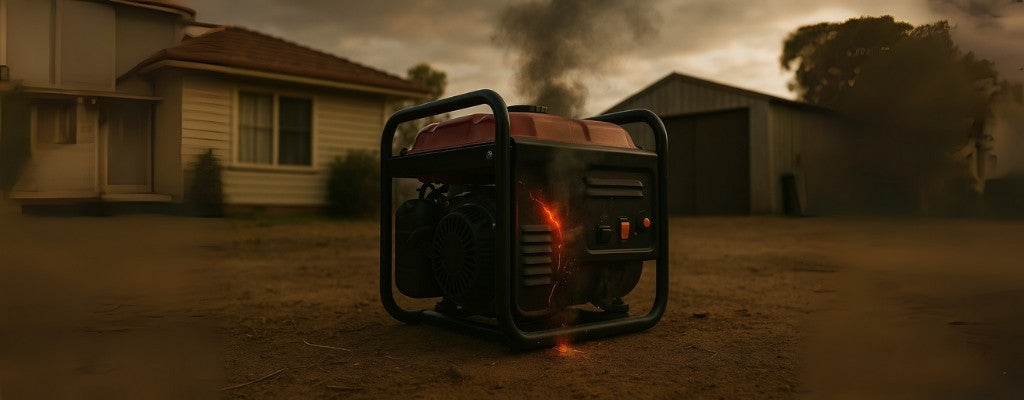
Can a Generator Burst?
Ever wondered if a generator could actually go boom? Short answer: yes, but it’s rare. Bursts usually come from poor maintenance, fuel leaks, or overheating. Stick around and you’ll learn the warning signs, the myths, and the safety steps that keep your backyard backup from turning dangerous.

Can generators explode?
Explosions aren’t the everyday fate of a generator, but they can happen if things go badly wrong. Don’t imagine a movie-style fireball — it’s more often a dangerous failure caused by heat, fuel vapour or electrical faults.
Generators rely on a mix of fuel, heat, and electricity. When all three get out of balance, you have the recipe for trouble. The good news is that knowing the common causes helps you avoid them altogether.

Common Causes of Generator Explosion
Overheating
Push a generator too hard, block its airflow, or ignore the warning signs, and it’ll run hot. Excessive heat builds pressure and wears out components, making them prone to failure.
Electrical Malfunctions
Loose wires, dodgy connections or internal faults can create sparks in the worst possible spots. Add fuel vapour to the equation, and suddenly you’re in dangerous territory.
Fuel Handling Errors
A cracked hose or spilled petrol is all it takes to create a fire hazard. If vapours ignite near a hot engine, the situation can escalate quickly.
Overloading the Unit
Plugging in too many appliances forces a generator to work beyond its limits. This strain can overheat parts or damage wiring, which sometimes ends in a burst or fire.

Can a generator burst in the house?
Running a generator indoors is one of the most dangerous mistakes you can make. It’s not just a fire or explosion risk — it brings hidden threats that can be just as deadly.
Understanding the Risk of Generator Explosion Indoors
Generators are made for the outdoors. Put one inside a garage or even too close to a window, and you invite hazards that can unfold in minutes.
Carbon Monoxide Poisoning
This is the silent killer. You can’t see it, you can’t smell it, but it can fill an enclosed space in no time. People have collapsed within minutes simply from breathing it in.
Fire and Explosion
A fuel leak in an enclosed space is like stacking kindling around a match. The smallest spark can ignite, and with nowhere for flames to go, the results can be devastating.
Backfeed
Plugging a generator straight into household wiring without a transfer switch can cause backfeed. Not only is this a fire risk, but it can also send electricity back into power lines and endanger workers trying to restore the grid.

Preventing Generator Explosion through Maintenance
The best way to stop problems before they start is regular maintenance. Think of it as treating your generator with the same care you’d give your car before a long road trip.
Safety and Maintenance Checklist
-
Always run your generator outside, at least five metres from doors and windows.
-
Place it on a flat, stable surface well away from flammable materials.
-
Inspect fuel lines, hoses, and connections before each use.
-
Don’t overload the generator — stick to the rated capacity.
-
Change oil and filters regularly to keep the engine clean and cool.
-
Pay attention to unusual noises, vibrations, or smoke. If something feels off, shut it down.
Explosions may be rare, but the risks are real. By keeping up with checks, maintaining airflow, and respecting safe distances, you cut those risks down to almost nothing. With some simple habits, your generator will quietly do its job — no fireworks, just reliable power when you need it most.
You might also like:
-
Are Generators AC or DC?
- Are Generators Eligible for Tax Credit?
-
How to Connect a Generator to Your House in Australia?
-
What Generators Are Made in Australia?
-
What Is an Uninterruptible Power Supply (UPS) vs. a Generator?
-
Can Multiple Generators Be Connected in Parallel?
- Can I Repair a Generator Myself?


